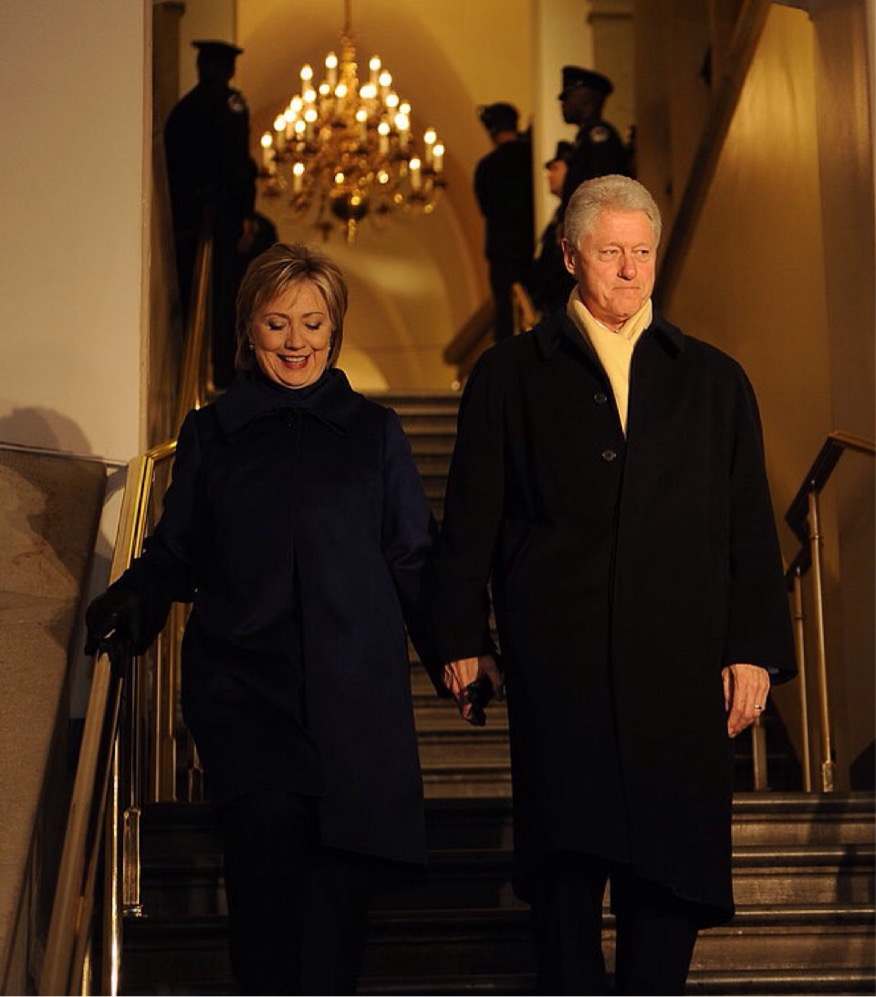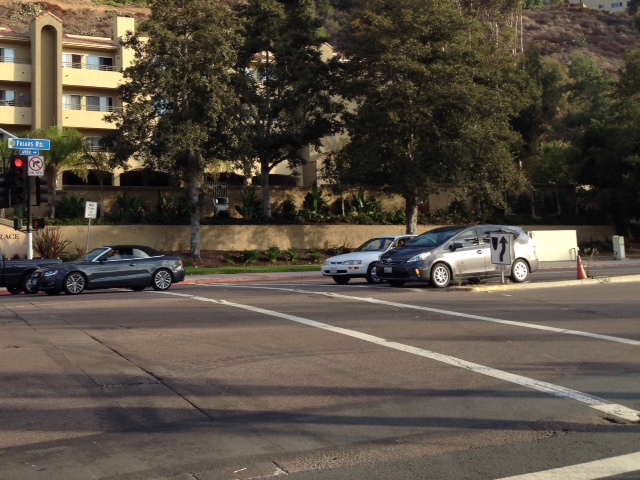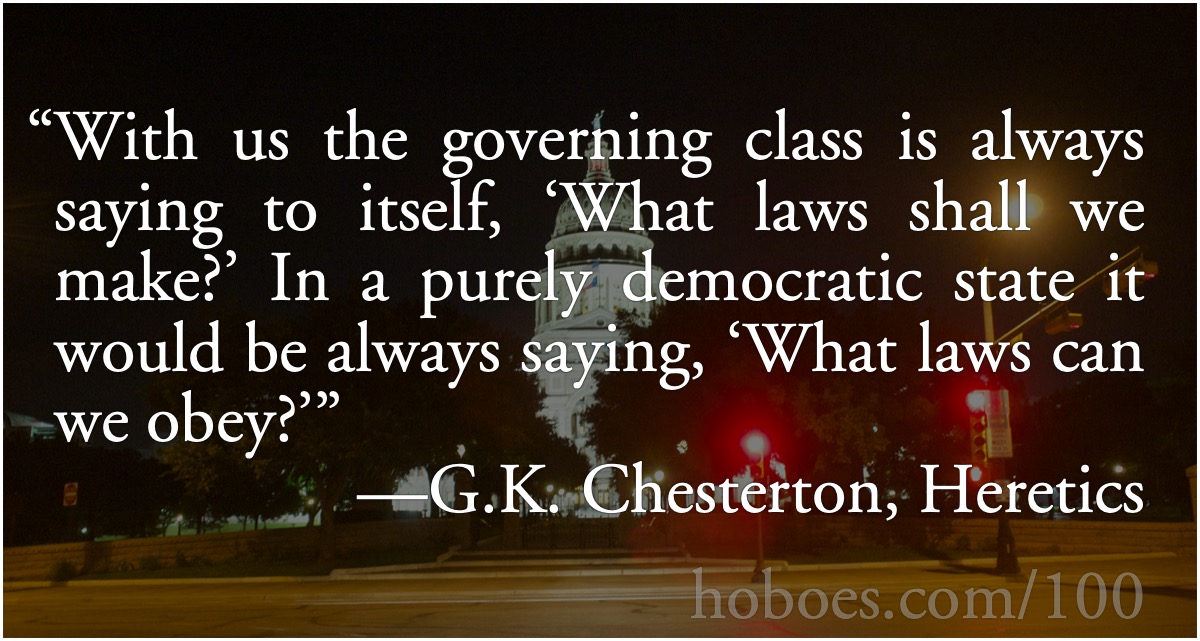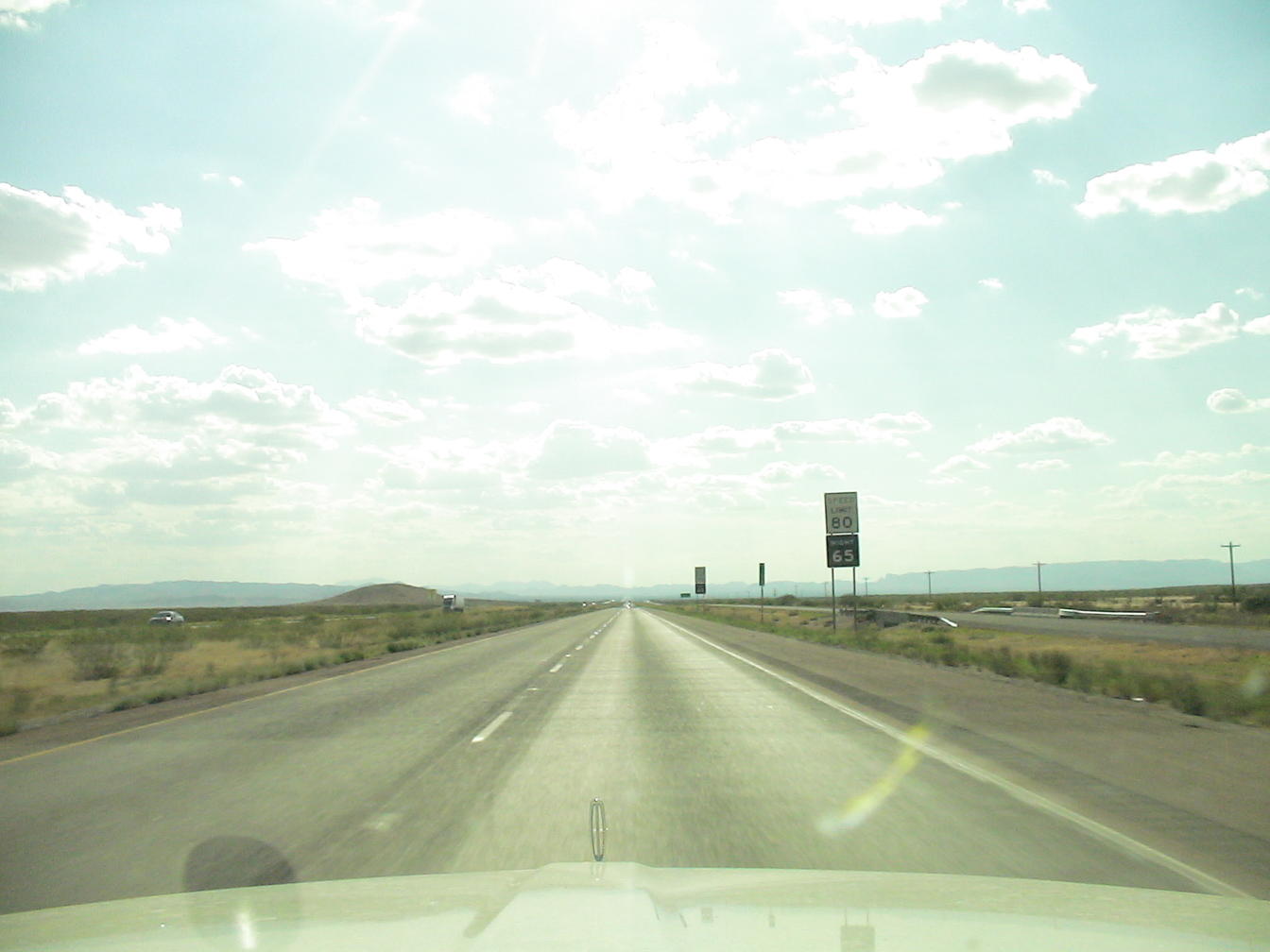Negative Space: traffic laws
- At least I got to see the officer squirm
- Traffic court has a very high opinion of humans’ ability to violate the laws of physics.
- Bad laws cause crime
- “Honestly, the level of apathy I’m dealing with is maddening.” Bad laws make it easy to get away with breaking them.
- Driving laws too complicated for DMV
- It appears that California’s driving laws are so complicated that even the DMV and the California Highway Patrol get confused.
- The Guerilla Guide to Traffic Court
- Traffic court is a real eye-opener, especially when you know what really happened because you were there.
- Hillary Clinton and husband accused of sexual assault
-
 Between them, Democratic Presidential candidate Hillary Clinton and her husband, William, stand accused of sexual harassment or assault against at least eight women, and have paid settlements of at least $850,000.
Between them, Democratic Presidential candidate Hillary Clinton and her husband, William, stand accused of sexual harassment or assault against at least eight women, and have paid settlements of at least $850,000.
- Massachusetts State Police encourage speeding
- Massachusetts State Police have made it clear that speeding laws are not about safety, but only revenue.
- Money more important than safe intersections
- When cities make money when laws are broken, they’ll ensure that those laws are broken more often. With red light cameras, this means shortening yellow times to unsafe levels.
- No Turn on Red
-
 Why is there a “no turn on red” on this intersection? No idea; it’s got the best visibility of any intersection on my bike route, the road is wide, straight, and flat for about a mile to the left.
Why is there a “no turn on red” on this intersection? No idea; it’s got the best visibility of any intersection on my bike route, the road is wide, straight, and flat for about a mile to the left.
- A one-hundred-percent rule for traffic laws
-
 Laws should be set at the point at which we are willing and able to jail 100% of offenders. We should not make laws we are unwilling to enforce, nor where we encourage lawbreaking.
Laws should be set at the point at which we are willing and able to jail 100% of offenders. We should not make laws we are unwilling to enforce, nor where we encourage lawbreaking.
- Red light cameras increase accident rates
- Yet another study showing that red light cameras increase, rather than decrease the danger at intersections.
- San Diego’s Finest Elite
- For police officers, the laws are merely guidelines.
- Speeding and budgets: Conflict of Interest
- Obviously, the money generated by speed laws creates a conflict of interest for state lawmakers, who will need more “lawbreakers” in order to meet budget numbers. But the conflict of interest doesn’t always stop there.
- Speed—and safety—winning over the traffic ticket lottery
-
 The double-entendre from the eighties was that speed kills, but speed—at least the traffic kind—is winning. On a straight highway, until the speed limit hits 70, most drivers ignore it.
The double-entendre from the eighties was that speed kills, but speed—at least the traffic kind—is winning. On a straight highway, until the speed limit hits 70, most drivers ignore it.
- Targeting critics of the law
- When Canadian journalist Kerry Diotte criticized red light cameras in Edmonton, Edmonton police started looking for a reason to arrest him.
- The traffic ticket lottery
- States and cities are treating traffic enforcement as a tax lottery for themselves. Why not turn the winnings over to the voters?
- Turning crime into a profit center
-
 Asset forfeiture and traffic laws have one dangerous thing in common: they turn danger into a profit center for government.
Asset forfeiture and traffic laws have one dangerous thing in common: they turn danger into a profit center for government.
More Information
- Speed Limit Studies
-
Many studies on the repeal of the 55-mph speed limit, 85th percentile speeds, and speed zoning.
- A Powerful Case By Law Enforcement For Safe And Realistic Speed Limits
-
“As shown in Figure 2, Speed Studies, the 85th percentile speed actually decreased from 73 mph to 72 mph when the posted limit was 15 mph higher.”
- Target: Rubio
-
“The typical employee in the New York Times’s Manhattan newsroom, The Scrapbook is guessing, may not know much about the struggles of America’s drivers. The fact that Rubio has four traffic tickets over 18 years is probably pretty close to the record of the everyday commuter and will, if anything, make him a bit more sympathetic. Further, Rubio’s F-150 is not an SUV as the Times initially blundered. Sure, it’s been one of the bestselling vehicles in America for over 33 years, but since they don’t drive many pickup trucks in Manhattan, the reporters managed to botch this detail.”
- Special license plates shield officials from traffic tickets
-
“An Orange County Register investigation has found that the program, designed 30 years ago to protect police from criminals, has been expanded to cover hundreds of thousands of public employees—from police dispatchers to museum guards—who face little threat from the public. Their spouses and children can get the plates, too. This has happened despite warnings from state officials that the safeguard is no longer needed because updated laws have made all DMV information confidential to the public.”
 Between them, Democratic Presidential candidate Hillary Clinton and her husband, William, stand accused of sexual harassment or assault against at least eight women, and have paid settlements of at least $850,000.
Between them, Democratic Presidential candidate Hillary Clinton and her husband, William, stand accused of sexual harassment or assault against at least eight women, and have paid settlements of at least $850,000. Why is there a “no turn on red” on this intersection? No idea; it’s got the best visibility of any intersection on my bike route, the road is wide, straight, and flat for about a mile to the left.
Why is there a “no turn on red” on this intersection? No idea; it’s got the best visibility of any intersection on my bike route, the road is wide, straight, and flat for about a mile to the left. Laws should be set at the point at which we are willing and able to jail 100% of offenders. We should not make laws we are unwilling to enforce, nor where we encourage lawbreaking.
Laws should be set at the point at which we are willing and able to jail 100% of offenders. We should not make laws we are unwilling to enforce, nor where we encourage lawbreaking. The double-entendre from the eighties was that speed kills, but speed—at least the traffic kind—is winning. On a straight highway, until the speed limit hits 70, most drivers ignore it.
The double-entendre from the eighties was that speed kills, but speed—at least the traffic kind—is winning. On a straight highway, until the speed limit hits 70, most drivers ignore it. Asset forfeiture and traffic laws have one dangerous thing in common: they turn danger into a profit center for government.
Asset forfeiture and traffic laws have one dangerous thing in common: they turn danger into a profit center for government.